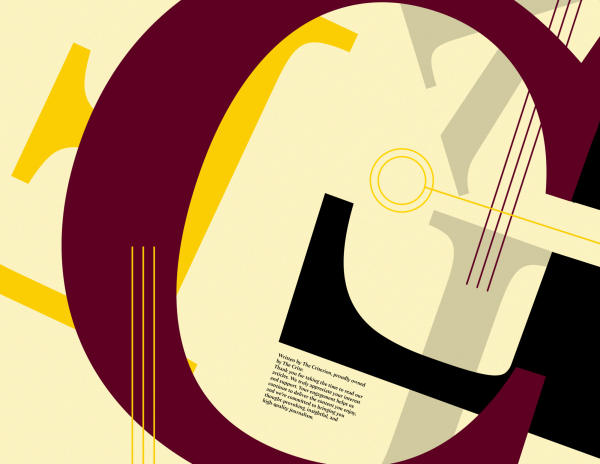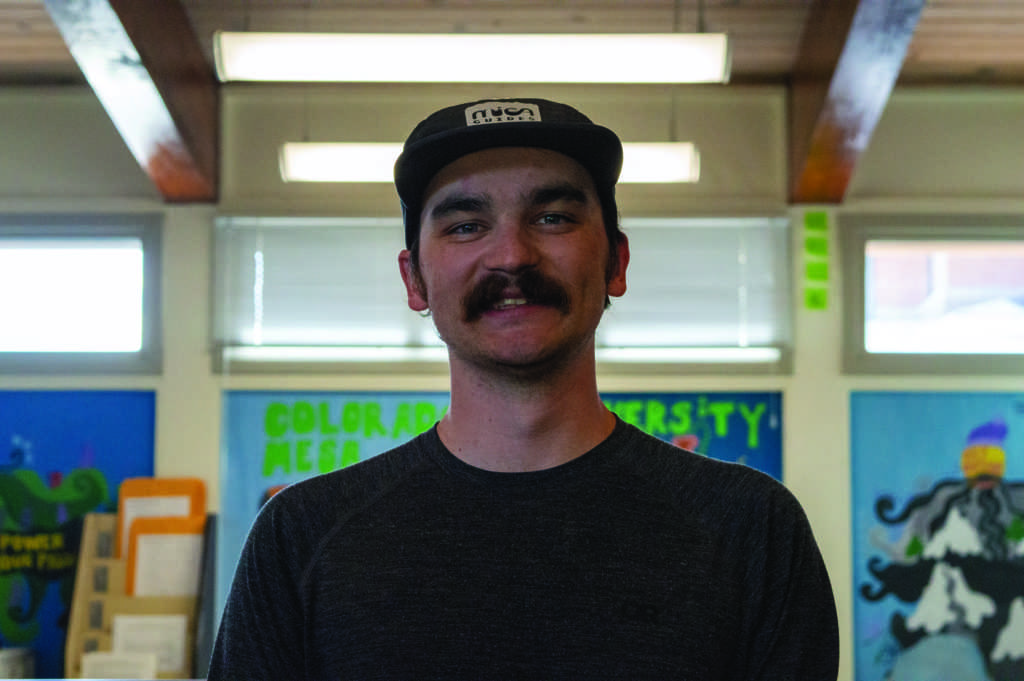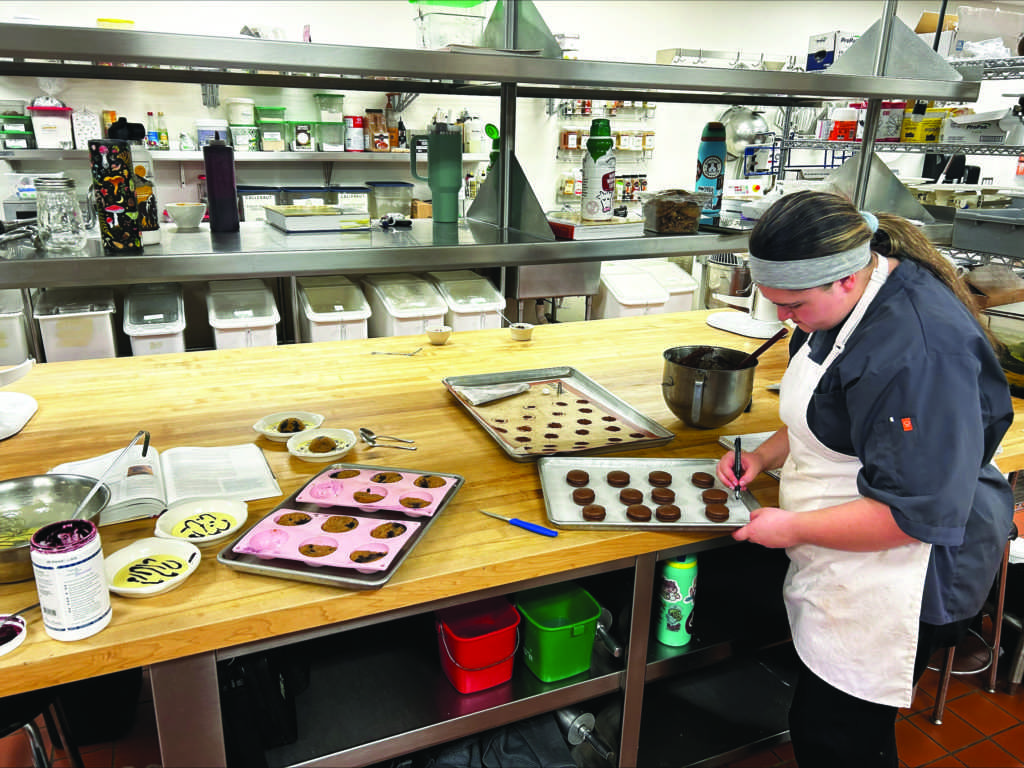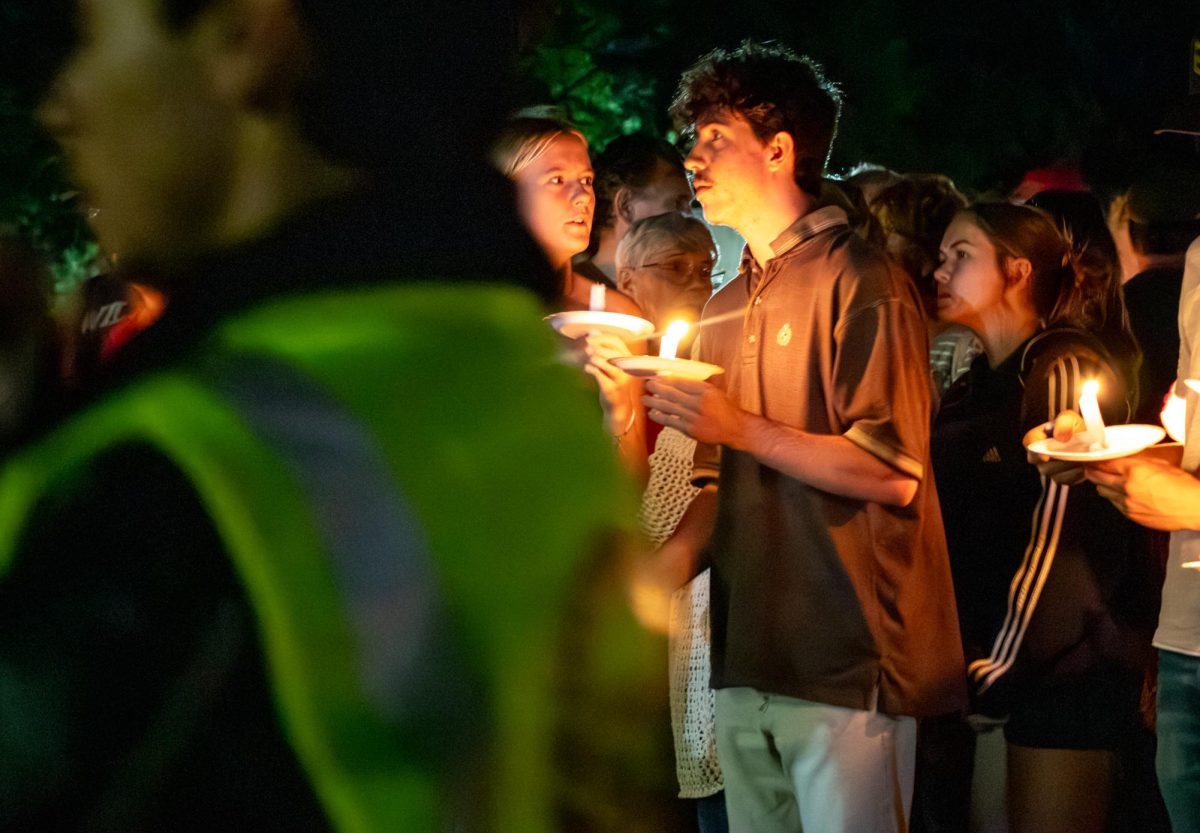From midnight margaritas to keeping a consistent planner, every student has their method of coping with stress.
Colorado Mesa University (CMU) sophomore accounting major Rachelle Neff recounts her friends pulling all-nighters or studying at the last minute because they let their work pile up. Neff keeps on top of her work through keeping track of her schoolwork in a planner, and likes to hike or treat herself to something nice after a stressful exam.
“My friends are super stressed, and I told them what I do, but that doesn’t help them,” Neff said. “They put in the ‘I’m gonna wing it’ phrase, […] but I don’t think that works for anyone.”
That sort of stress management isn’t for everyone. For example, student Melanie Chavez copes with stress by playing video games and talking to her pet fish Adonis. Videogames act as a form of escapism for Chavez and talking to her fish lets her release her emotions as well as makes her feel less alone.
Sophomore biology major Erika Woodley listens to music and takes naps to cope with stress. She enjoys turning up her music when no one is around and having a mini dance party to get all her stress out.
For Chavez and Woodley, their coping mechanisms are things that can block their stressors from their mind. While enjoyable, escapism coping mechanisms are unhealthy in excess.
According to welldoing.org, the purpose of escapism is to numb oneself of the pain and emotions that they are feeling. It can also be a symptom or effect of depression and dissociation. Grounding techniques can become a healthier coping alternative to escapism.
Dr. May MacIntire is both a licensed therapist and psychology professor at Colorado Mesa University, and she cares deeply for all her students. She noted that drinking alcohol is an extremely unhealthy coping mechanism.
“Alcohol is really bad for your brain and body, but especially bad for your brain. And that tends to be the thing that gets modeled in our culture, people drinking alcohol to deal with a stressful day. But really, alcohol is not great for us at all,” Dr. MacIntire said.
The intake of a depressant, or anything that can potentially harm one’s body is a maladaptive coping mechanism. These sorts of coping mechanisms are not sustainable in the long run, and could lead to complications down the road.
“In the literature on stress management, we encourage people to do things that are healthy for them as opposed to unhealthy […] the unhealthy stress management would be, you know, engaging in anything that’s self-destructive. anything that really tears you down as opposed to build you up,” MacIntire said.
As a therapist and professor, MacIntire has taught a plethora of healthy coping mechanism options for students.
Mindfulness meditation: According to MacIntire, meditation does not have to be in the pursuit of spiritual awakening or Zen. Mindfulness meditation is about being in the moment and finding a non-judgmental awareness of oneself. This takes place through a series of deep breathing and focus on the breath.
Exercise: According to helpguide.org, exercise can greatly help an array of mental health problems. Exercise releases endorphins, and other chemicals that make one’s emotions naturally feel better.
Journaling: This gets thoughts out of one’s head and onto paper. Journaling doesn’t have to be a complicated process; it can be as simple as writing a couple sentences on a loose piece of paper.
Social Support: Humans are social creatures, and the pandemic made it difficult to get in person social contact. However, social contact in the form of a phone call to a loved one or even just some quality time with a pet can work just as effectively.
Sleep: MacIntire also mentioned how getting good amounts of sleep is correlated to good memory. This may mean that pulling an all-nighter to study for a test might not be the best option for memorizing material. Although it may be difficult for some students to do this, MacIntire suggests studying ahead of time in order to avoid the all-nighter. Getting into a routine of some sort helps manage both sleep and study.
“When we’re stressed, our glass is half empty, you know we’re pessimistic, we’re upset. Things aren’t going right. What can you do to fill that glass, what can you do to recharge your batteries? We’ve all got to have an intentional effort toward doing the things that make us feel rejuvenated. And sometimes it’s about trying new things and allowing for the little things to uplift us. You know, like, go outside and fly a kite, or go hunting for some, some fall leaves that are changing,” MacIntire said.





















Pearl Spa • Oct 20, 2020 at 11:18 pm
I do the sleep and exercise to cope up with stress its really effective 🙂